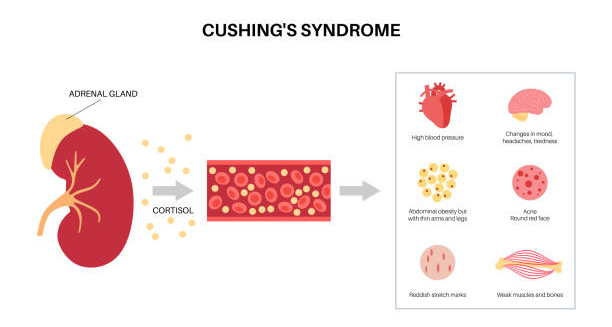Causes of Cushing’s Syndrome
Causes of Cushing’s syndrome are categorised into endogenous (internal) and exogenous (external) sources. Both lead to elevated levels of cortisol, which in excess can negatively impact the body’s normal functions. Understanding the root cause of Cushing’s syndrome is essential for determining the appropriate treatment plan.
Exogenous Causes
The most common cause of Cushing’s syndrome is long-term use of corticosteroid medications, such as:
Prednisone
Dexamethasone
Hydrocortisone
These drugs are often prescribed to manage autoimmune diseases (like lupus or rheumatoid arthritis), asthma, or after organ transplants. When taken over time, they can mimic the body’s natural cortisol and lead to the symptoms of Cushing’s syndrome.
Endogenous Causes
In these cases, the body itself produces too much cortisol. Main sources include:
Pituitary Adenomas (Cushing’s disease)
The most frequent endogenous cause
A benign tumour in the pituitary gland releases too much ACTH, which stimulates cortisol production by the adrenal glands
Adrenal Tumours | Causes of Cushing’s Syndrome
Non-cancerous or cancerous growths in the adrenal glands that directly produce excess cortisol
These cases are ACTH-independent
Ectopic ACTH Syndrome
Rare
Caused by tumours in other parts of the body (e.g. lungs or pancreas) that produce ACTH
Genetic and Familial Factors
Though rare, some inherited conditions like Carney complex or Multiple Endocrine Neoplasia (MEN1) can predispose individuals to developing cortisol-secreting tumours.
Triggers and Risk Factors
Being female
Prolonged stress or underlying endocrine issues
Use of steroid creams or injections
In conclusion, causes of Cushing’s syndrome range from external corticosteroid use to hormone-secreting tumours. Identifying the source is key to developing a targeted treatment strategy and achieving hormonal stability.
[Next: Symptoms of Cushing’s Syndrome →]


